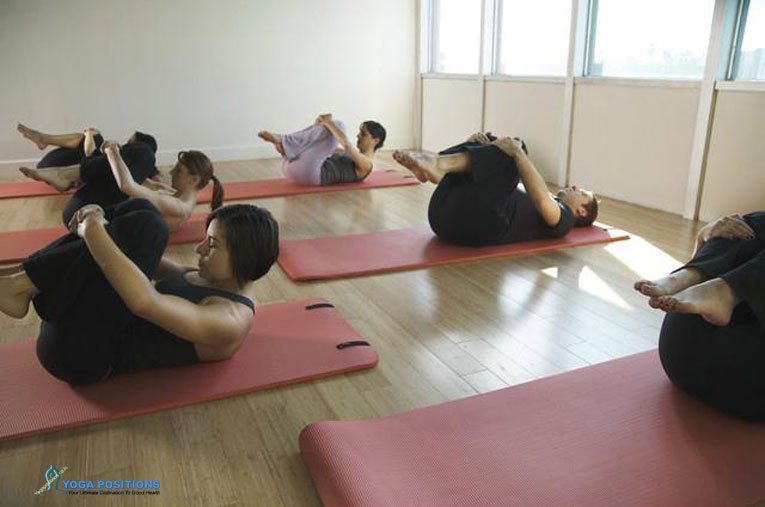887
The Sanskrit term Pavanamuktasana is made up of three words: ‘Pavana’ meaning ‘wind’; ‘Mukta’ meaning ‘release’ and ‘Asana’ which connotes the respective yogic posture. It is therefore known as the ‘Wind-releasing posture’. In this posture, the practitioner massages the digestive organs and releases the excess wind from the intestines and the stomach.

Methodology
- Remain flat on your back.
- Your arms will be stretched out on your sides.
- The palms will be turned downwards.
- The legs will be folded back.
- Place your feet flat on the ground.
- Take a deep breath slowly.
- Do the following movements as you exhale.
- The feet will have to be drawn inwards.
- Fold your legs against the heels.
- The knees will have to be brought towards the chest.
- Press down the palms on the floor.
- Raise the shoulders and the head off the floor.
- Once again press down the palms against the floor.
- Lift up your buttocks and hips.
- Move your knees further near the chest.
- Your knees and feet will have to be kept together.
- But don’t lower the head.
- Embrace your folded legs below the knees with your folded arms.
- Exhale and press down the knees together atop the chest.
- Without lowering the head keep together your feet and knees.
- Hold on to your breath and remain in this position for approximately five seconds.
- Exhale completely.
- Once again inhale and bring slowly rest your head on the ground.
- Simultaneously relax the pressure of your arms on the legs.
- However, your arms should keep on folding the legs just below the knees.
- Slowly stretch out your legs as well as the arms.
- Remain relaxed!
Advantages
- Any one at any age can enjoy the benefits arising from regular practising of this asana.
- Pavanamuktasana can be practised by people in their advanced ages as well.
- Flatulence is cured as the gas – the main target of this posture – is automatically released.
- That confined gas is pressed out via your ano-rectal passage.
- The accumulated wind especially in your abdomen and the colon will be effectively brought out.
